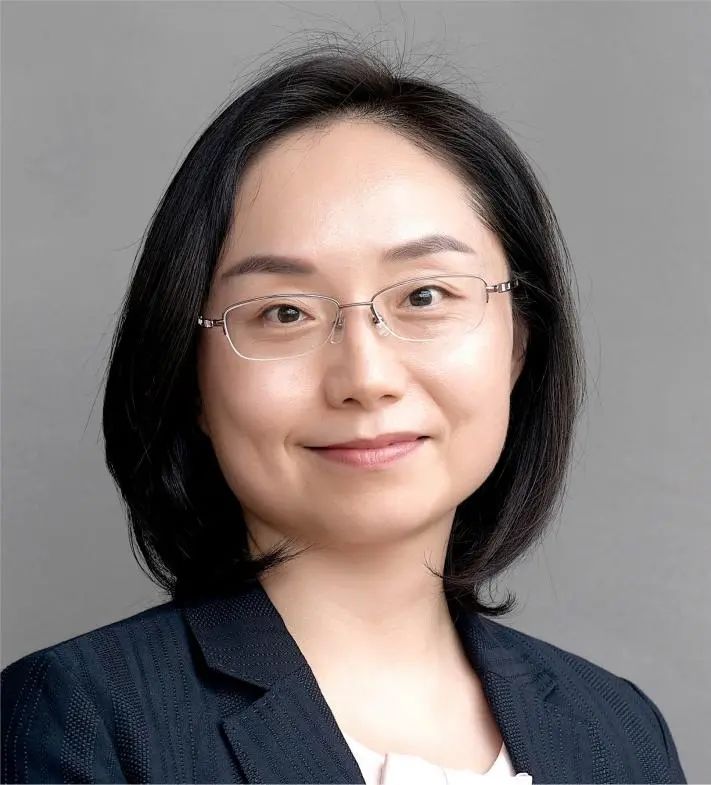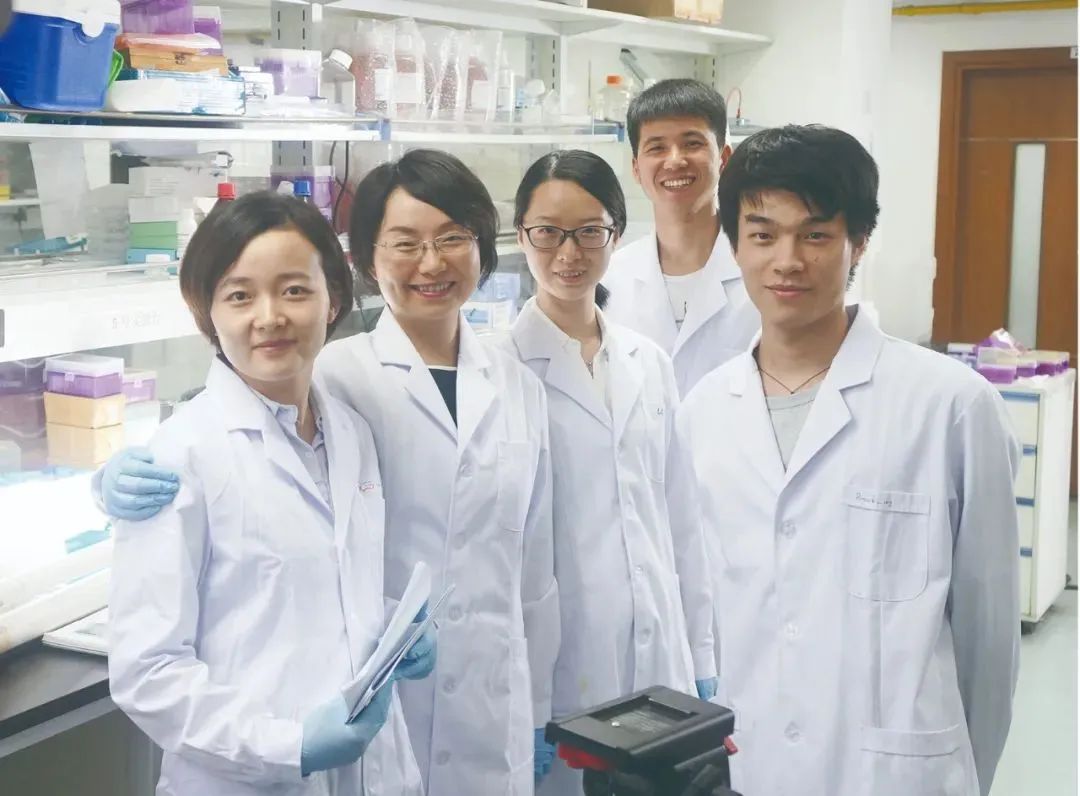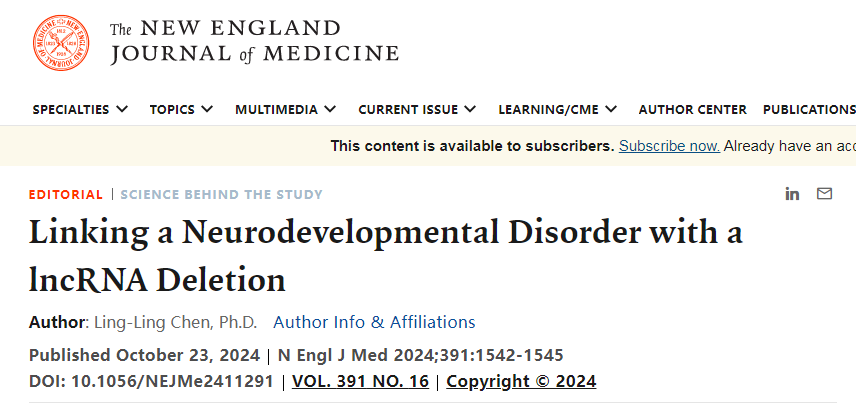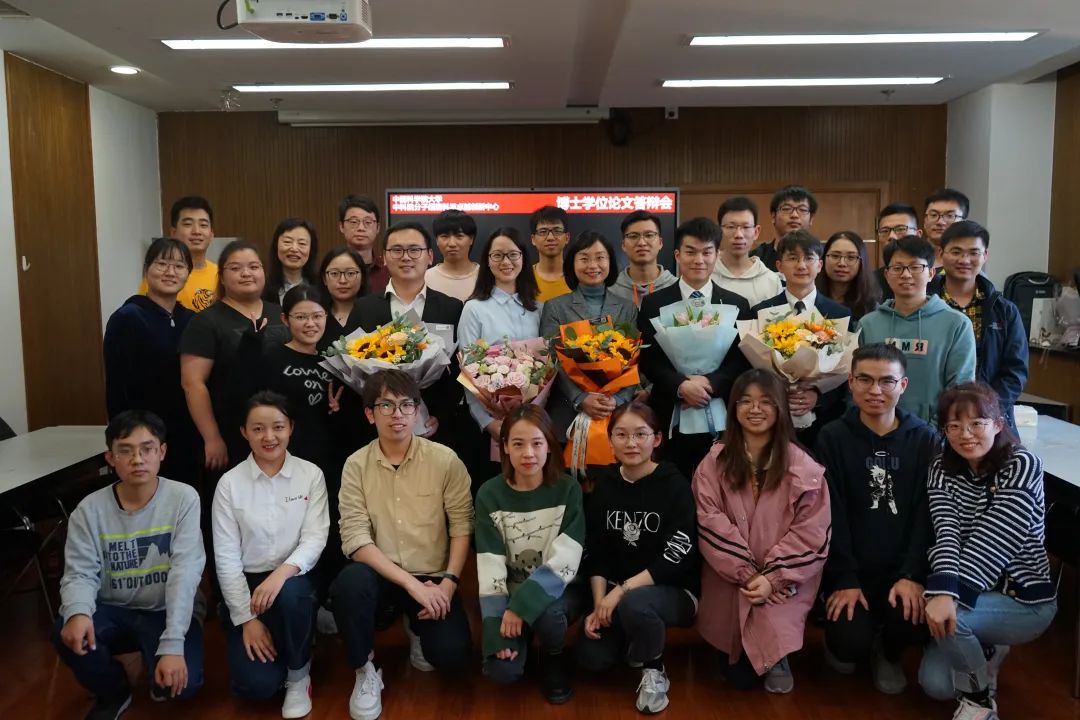
From initially serving as a medium for information transmission between DNA
and proteins, to the later discovery of various non coding RNAs (ncRNAs), RNA's
functions far exceeded initial imagination. Among all RNA, ncRNA accounts for as
much as 98%.
In recent years, it has been gradually discovered that a large number of
non coding RNAs play critical roles in gene expression regulation, cell
signaling, chromosome structure maintenance, and various biological processes.
In this dynamic research field, researcher Chen Lingling from the University of
Chinese Academy of Sciences stands out with her outstanding research
achievements.
This year, she won the second prize of the the State Natural Science Award
(the first person to complete it) by virtue of "Research on the generation and
functional mechanism of cyclic RNA"; Later, he was awarded the Excellence
Research Award by the Federation of Asian and Oceanian Biochemists and Molecular
Biologists (FAOBMB) in 2024, becoming the third Chinese scientist to receive
this award after Academicians Shao Feng and Yan Ning.

Chen Lingling, born in Shangqiu, Henan Province in December 1977, is
currently a researcher, research leader and doctoral supervisor of the Center of
Excellence in Molecular Cell Science of the Chinese Academy of Sciences.
Currently serving as an editorial board member for multiple international
journals such as Cell, Science, Mol Cell, as well as the chairman of conferences
such as the Cold Spring Harbor Laboratory Non Coding RNA Conference and the
International RNA Association Annual Meeting. In 2017, he was selected as an
international research scholar by the Howard Hughes Medical Institute (HHMI) and
supported by the National Science Foundation for Distinguished Young Scholars.
Has won honors such as the China Youth Science and Technology Award Special
Award, Science Exploration Award, Tan Jiazhen Life Science Innovation Award,
Global Chinese Biologists Association CBIS Young Researcher Award, and China
Young Female Scientist Award.
Growth: Racing against Time
Chen Lingling received her bachelor's degree from Lanzhou University in
2000 and her master's degree from the Chinese Academy of Sciences Shanghai
Institute of Materia Medica in 2003. Subsequently, he went to the University of
Connecticut in the United States for further studies and obtained a Ph.D. in
Biomedical Sciences in 2009, as well as a Master's degree in Business
Administration from the School of Business.
In May of the same year, as an independent PI, I was awarded the
Connecticut Stem Cell Seed Award research funding. I was employed as a
postdoctoral researcher at the School of Stem Cells at the University of
Connecticut and became an assistant professor in May 2010.

In 2011, Chen Lingling still decided to return to China and join the Center
for Excellence and Innovation in Molecular Cell Science (the former Institute of
Biochemistry and Cell Biology) of the Chinese Academy of Sciences. Starting from
scratch, she recruited a team, applied for funding, and led the team to explore
and discover various new long non coding RNA families that play important
regulatory roles in life activities internationally.
It is worth mentioning that in May 2017, Researcher Chen Lingling won the
Howard Hughes Medical Institute International Young Scientist Award, indicating
that she has become a leader in this field on the global scientific stage.
In August of the same year, an application titled "Metabolism and Function
of Long Non coding RNAs" was successfully funded by the National Science
Foundation for Distinguished Young Scholars.

During the study period, conduct experiments during the day and learn
management at night; After engaging in scientific research, there are almost no
weekends. Even the day before giving birth, I was still working... and it was
this relentless journey that led to today's extraordinary achievements.
She once said, "There are no shortcuts to doing scientific research. There
is only so much time, and only by working hard can one do it faster and better
than others
Exploration: Interpreting the Book of Life
Chen Lingling's team has long focused on cutting-edge research in the
fields of long non coding RNA and circular RNA, including the discovery of new
types of molecules, their processing and maturation mechanisms, their functions
in transcription, chromosomes, nuclear substructures, and stem cell stemness
maintenance, as well as related application potential.
On the occasion of the 50th anniversary of the founding of Cell magazine
this year, Chen Lingling was invited to collaborate with V. from Seoul National
University in South Korea Professor Narry Kim collaborated to publish a lengthy
review article titled "Small and long non coding RNAs: Past, Present, and
Future" in this top tier journal on November 14th. This article systematically
reviews the discovery process, mechanism of action, research progress, and
functional cognition of these two non coding RNAs in physiology and pathology,
and looks forward to future research directions in the field of non coding
RNAs.

Previously, she was invited to publish a review paper titled "Dynamic conformation: Marching towards circular RNA function and application" as the corresponding author in Molecular Cell. The paper summarized the influencing factors and mechanisms of circular RNA conformation, as well as the existing technical means and bottlenecks in research, further indicating that these efforts will ultimately provide guidance for designing circular RNA platforms for biomedical applications.

On October 23rd, Researcher Chen Lingling was invited as the sole author to
publish a review article in One of the Four Top Clinical Medicine Journals, The
New England Journal of Medicine.
This article provides an in-depth interpretation of a research
collaboration between the Massachusetts Institute of Technology and the Broad
Institute at Harvard University (Neurodevelopmental Disorder Caused by Deletion
of CHASERR, a lncRNA Gene), exploring the issue of insufficient non coding RNA
dosage leading to neuroimmune diseases and pointing out future research
directions.
This is the first Chinese scholar invited by the "Science Behind the Study"
section of NEJM magazine.

Upon closer inspection, Researcher Chen Lingling has been invited to
publish four review articles in four different top tier journals this year,
demonstrating the recognition of her research capabilities.
In addition, their team has published multiple high-level articles in
journals such as Nature Biotechnology, Nature Methods, Molecular Cell, etc. this
year, and Researcher Chen Lingling is an independent corresponding author.

As one of the earliest scholars in China to study long non coding RNAs,
Chen Lingling has been pursuing the latest technology and exploring more
unknowns. The development of third-generation long read RNA sequencing
technology, ultra-high resolution microscopy imaging technology, as well as gene
editing and base editor technology, is bringing unprecedented opportunities for
analyzing new mechanisms of RNA action and new applications of RNA based on
original theories. "She emphasized," Time waits for no one. We must carry
forward the spirit of daring to be the first and make every effort to seize the
technological high ground in this field
Can she be successfully elected next year as a valid candidate for the co
selection of academicians of the Chinese Academy of Sciences for two consecutive
terms?